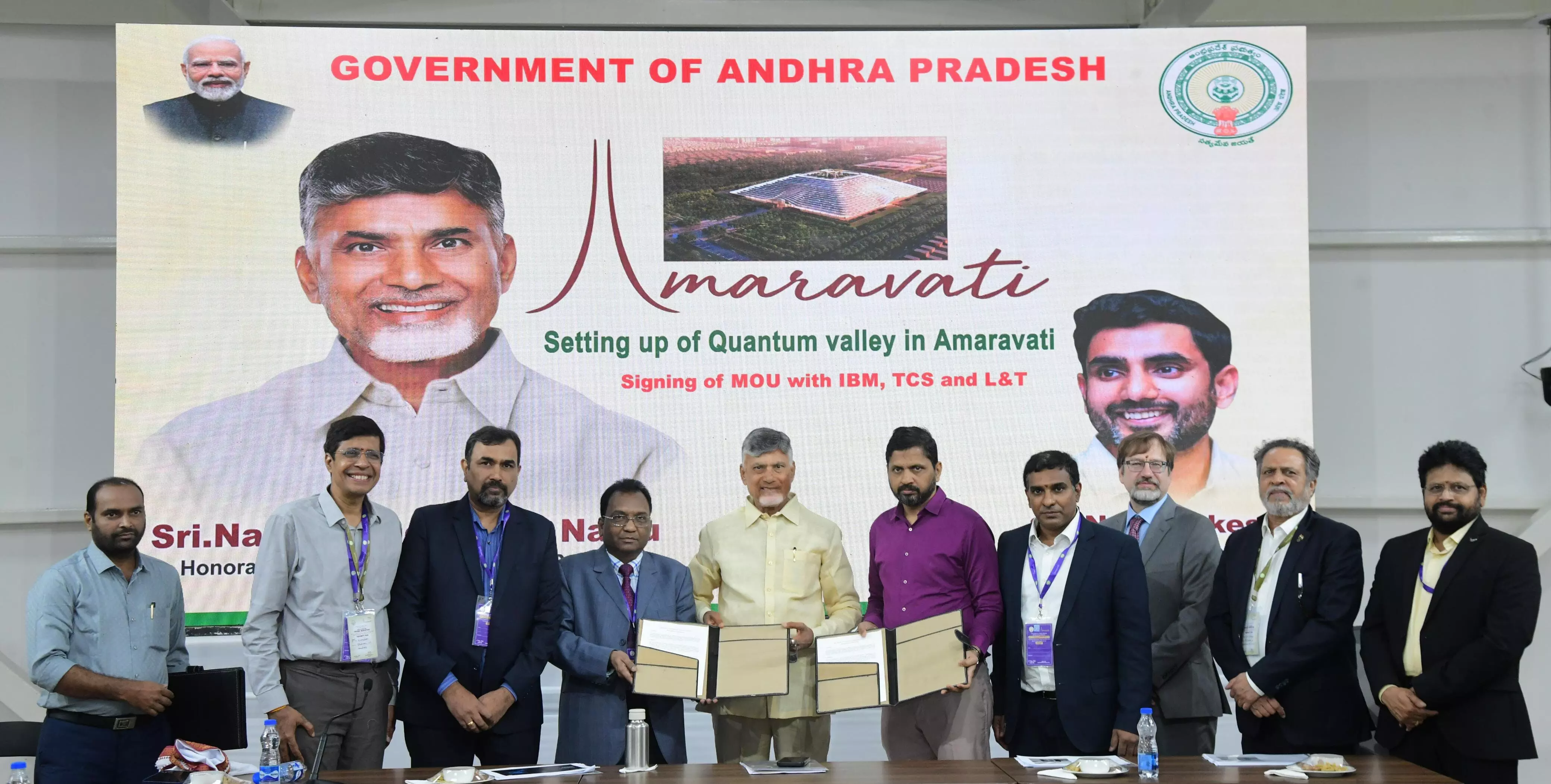India to get first Quantum Valley in Amaravati; IBM, TCS, L&T sign MoU
With IBM, Tata Consultancy Services (TCS), Larsen and Toubro (L&T), Andhra Pradesh government will deploy India's most powerful quantum computer by 2026
By Sri Lakshmi Muttevi
Amaravati: The city is set to become India's first 'Quantum Valley'; IBM, TCS, L&T sign MoU with government of Andhra Pradesh
Amaravati: Ahead of Amaravati’s grand relaunch, Chief Minister Nara Chandrababu Naidu has unveiled a major technological milestone: India’s first ‘Quantum Valley’ will be established in the capital city.
In partnership with leading IT firms IBM and Tata Consultancy Services (TCS), Larsen and Toubro (L&T), the Andhra Pradesh government will deploy the country’s most powerful quantum computer, slated for inauguration on January 1, 2026.
The announcement comes just ahead of Prime Minister Narendra Modi’s visit to the state for Amaravati’s relaunch on May 2. At a key event held at his residence in Undavalli on Friday, CM Naidu oversaw the signing of Memoranda of Understanding (MoUs) with global tech giants IBM, TCS, and (L&T to establish India’s first full-fledged quantum computing ecosystem.
"This is a historic moment — not just for Andhra Pradesh but for all of India. Quantum computing will be the foundation of next-generation governance and innovation. There’s no turning back now," Naidu declared.
He also noted that the central government, under PM Modi's leadership, would be formally briefed on the project. Two high-level committees — one focused on infrastructure and another on ecosystem development — will be formed to ensure timely and scalable implementation.
CM Naidu highlighted that TCS is already supporting the state’s P4 initiative by analyzing data from 1.7 crore families, reinforcing their role in the broader digital governance mission.
The IBM Quantum System Two, powered by a 156-qubit Heron processor, will be the most powerful quantum computer in India. Meanwhile, TCS will facilitate quantum accessibility across 43 research centers spanning 17 states, further democratizing advanced computing resources nationwide.